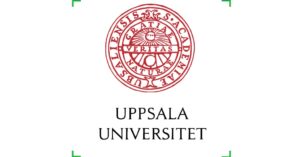Are you holding Master’s degree and ready to elevate your academic journey to the highest level? Uppsala University, Sweden, has announced a multiple fully funded PhD positions awaiting talented individuals like you. Don’t miss your chance to be part of our vibrant academic community. Explore the exciting PhD positions available and submit your application today!”
Candidates interested in fully funded PhD positions can check the details and may apply as soon as possible.
(01) Fully Funded PhD Position
PhD position summary/title:–PhD student in Materials Chemistry at the Program for Inorganic Chemistry
The PhD project involves research on new types of surface coatings for demanding environments, including nuclear fuel rods for use in nuclear power plants. The work is part of a larger research program with Uppsala University, Linköping University, and Chalmers University of Technology. Collaborations with other doctoral students and senior researchers are an important part of the research. The materials will mainly be produced using chemical vapor deposition (CVD). The research project will involve fundamental materials science studies of thin films produced with CVD, as well as application-oriented studies in collaboration with industry partners.
Deadline : 2024-08-15
(02) Fully Funded PhD Position
PhD position summary/title:–PhD student in sustainable aqueous batteries
Future grid energy storage technologies must rely on abundant materials sourced from energy-efficient and environmentally friendly processes. Aqueous batteries based on widely available elements such as Na, Fe, and S hold considerable promise but face significant challenges with electrolyte degradation whereby the hydrogen evolution reaction (HER) is particularly notable. Several HER mitigation approaches are however emerging. The research project is dedicated to developing and implementing operando H2 gas analysis to investigate HER in aqueous batteries. Molecular electrolyte additives capable of suppressing HER will be identified and characterized to gain a fundamental understanding of their operating mechanisms. Performance testing and techno-economic analysis will be conducted to evaluate the most promising battery compounds.
Deadline : 2024-06-20
View more Fully Funded PhD Positions Click Here
(03) Fully Funded PhD Position
PhD position summary/title:–PhD position in human population genetics and ancient DNA analyses
Are you interested in working with human population genetics, with the support of competent and friendly colleagues in an international environment, with the support of competent and friendly colleagues in an international environment? Are you looking for an employer that invests in sustainable employeeship and offers safe, favourable working conditions? We welcome you to apply for a PhD position at Uppsala University.
We’re looking for a dedicated PhD student to join our team focused on the DNA research of African populations, both modern and ancient. The selected candidate will be responsible for laboratory work with ancient DNA and the bioinformatic analysis of population genetic data. The goal is to understand African population structure and their genetic responses to changes in lifestyle and environment over time. This position offers a chance to deepen our knowledge of Africa’s human population history.
Deadline : 7th June 2024,
(04) Fully Funded PhD Position
PhD position summary/title:–PhD position in Evolutionary Genomics – Diversity and evolution on lichen-associated basidiomycetes
Despite the symbiotic nature of lichens being discovered over 150 years ago, they remain highly enigmatic to this date. Recent studies have shown that basidiomycete yeasts are frequent and diverse components of many lichens. However, in general we lack comprehensive knowledge about the lichen-associated basidiomycete diversity, distribution, and roles in the symbiosis.
We are looking for a PhD student who will study the diversity and genome evolution of lichen-associated basidiomycete yeasts in common lichens, and their interactions with other organisms in the thalli. The diversity of lichen-associated basidiomycetes will be studied by long-read metabarcoding and high-throughput sequencing. In addition, cell-sorting and single cell genomics will be employed to generate genomic data of selected basidiomycete taxa from lichen thalli. The data will be used to build a genomic framework for lichen-associated basidiomycetes, and to assess their genomic features for signatures of the symbiotic lifestyle and their functional potential. Furthermore, the organismal landscape and interactions within lichen thalli will be studied with state-of-the-art advanced microscopy methods.
Deadline : June 11, 2024.
(05) Fully Funded PhD Position
PhD position summary/title:–PhD student in data-driven life science – Chemistry
Your goal will to leverage cutting-edge machine learning methodologies to extract conformational ensembles from single-particle cryo-EM data. The project builds on our recently established (not yet published) software, which machine-learns protein structures from cryo EM images and which therefore refines structural heterogeneity directly against single-particle cryo EM data.
Your tasks will be to translate the algorithm from the test-bed to the application stage, to integrate it with chemical force-fields and structure prediction of proteins, and to resolve the structure dynamics of dynamic protein complexes relevant to bacterial and plant photoreception and human circadian timekeeping. You will be involved in all steps of the project, i.e. to design and program the software, to perform computational experiments, to analyze data, and to present and publish the results. The choice of sub-projects will be adjusted to your interests and previous knowledge and experiences.
Deadline : 14 June 2024
(06) Fully Funded PhD Position
PhD position summary/title:–PhD student in Social Cybersecurity
The project is in the emerging area of social cybersecurity. Research in social cybersecurity addresses how online communication technologies are used to influence public opinion and attitudes (for example spreading disinformation) and undermine social cohesion (for example polluting online conversations with hateful comments about out-groups). We collectively call these issues social information threats. Work in this field seeks to identify the actors that manipulate narratives (what is talked about and to what intent) and communities (who is talking to whom), and the methods they use. The field contributes to knowledge about how this form of societal manipulation can be identified, measured, but also how it can be countered. Acquiring this knowledge is key to supporting democratic resilience.
Deadline : 5th of June 2024
Connect with Us for Latest Job updates
(07) Fully Funded PhD Position
PhD position summary/title:–PhD position in condensed matter theory
The research tasks include the development of theoretical models and of computer simulation programs. The areas to which the PhD student can contribute are: theory and modeling of light-induced spin and orbital currents, theory of laser-induced ultrafast spin dynamics and spin transport, theory for coupled out-of-equilibrium dynamics of electrons, magnons and phonons, theory of electron magnetic circular dichroism, and modeling of electrically induced magnetization dynamics in spintronic elements.
Various computer programs, like first-principles methods (DFT and TDDFT) and simulations of out-of-equilibrium dynamics will be used. In the project that is headed by Prof. Peter Oppeneer the candidate is offered the possibility to work in an exciting modern research area in condensed matter physics and will have opportunities to interact and collaborate with leading experimental and theoretical groups as well as industry.
Deadline : 17 June 2024
(08) Fully Funded PhD Position
PhD position summary/title:–PhD student in structure-based drug design with focus on machine learning
The objective of the PhD project is to develop computational approaches to identify small molecule and peptide ligands that target therapeutically relevant receptors, with the vision to accelerate the drug discovery process. The project will be focused on addressing several challenges in structure-based drug design using artificial intelligence. Recently developed techniques for the prediction of the three-dimensional structures of proteins and protein-ligand complexes will be optimized for drug discovery applications. These methods will be applied to identify ligands of G protein-coupled receptors, a large family of membrane proteins involved in numerous physiological processes. By leveraging machine-learning enhanced virtual screening, the PhD student will be able to perform searches for ligands in chemical libraries containing billions of molecules. The project will be carried out in close collaboration with experimental research groups to evaluate the computational models developed in the project.
Deadline : 17 June 2024,
(09) Fully Funded PhD Position
PhD position summary/title:–Doctoral (PhD) position in Nanotechnology and Functional materials, with focus on metal-organic frameworks (MOFs) for water harvesting and hydrogen generation
This is a project in the field of functional porous materials for applications such as gas separation (greenhouse gases), water harvesting, water purification, catalysis and drug delivery. Within the project there is expertise in the synthesis and optimization of a wide range of porous materials, including porous oxides, zeolites and metal-organic frameworks (MOFs), etc.
In this project, you are given the opportunity to focus on environmental applications of porous materials such as MOFs. Specific application areas include water harvesting by adsorption and catalytic hydrogen generation using MOFs. The project mainly involves the synthesis and characterization of existing and new MOFs, as well as the development of post-synthesis processing methods such as 3D printing and the construction of simple devices for water capture and hydrogen generation.
Deadline : 7th June 2024
(10) Fully Funded PhD Position
PhD position summary/title:–PhD positions at the Department of Economic History
Project 1: Banking crises and crises management in theory and practice
What causes banking crises and what can we do about them? Almost all research on this has been done at the national level, but to better understand crises and crisis management, research is needed at the bank level to examine why some banks cope with crises and others do not. And how and why individual banks respond to different interventions to prevent banking crises. The project involves the completion of a quantitative panel database of all commercial banks over the period in question. This can be combined with qualitative data from the Bank Inspectorate’s archives, newspapers, parliamentary print and other government institutions (such as the Riksbank and the Swedish National Debt Office) to better understand crises and crisis management. This qualitative data will be digitised, made machine-readable and processed using modern qualitative data processing techniques.
Project 2: Intangible Assets and the Alchemy of Investment Law
Two remarkable developments have occurred over the last three decades: the phenomenal growth of intangible assets and the rapid development of international investment law. These phenomena, rarely studied concomitantly, are in fact co-constitutive. It is well known that the largest companies by market capitalisation today tend to be intangible-asset-heavy companies, with intangible assets sometimes accounting for over 80% of total company value. This shift in the value composition of capitalism has gone hand in hand both with the expansion of the global intellectual property regime and that of international investment law. Investment treaties have multiplied rapidly in recent decades and currently weave almost every country into so comprehensive a web that foreign investment unprotected by a treaty is the exception today. By empirically studying a set of (foreign) investor v. (host) state arbitration cases and embedding such analysis in a multidisciplinary analysis, this project investigates the practical ways in which the international investment system enables the rise and functioning of intangible assets, esp. intellectual property ones, as the main source of wealth today
Project 3: The Impact of Spatial Childhood Conditions on Individuals’ Future Outcomes – Insights from Swedish Cities Over 140 Years
How are individuals affected by their childhood environments in terms of future labor market and educational outcomes? Despite many studies on modern data, we know relatively little about this due to three reasons: Firstly, the short time horizon in previous studies has not allowed for the evaluation of long-term effects across multiple generations. Secondly, later periods do not provide sufficient variation in the degree of social segregation and in the composition of different residential areas. Thirdly, the geographic detail necessary to more precisely identify the effect of individuals’ childhood environments is often lacking.
In this project, we use geocoded data on all individuals in a large number of Swedish cities from 1880 to 2020 to study these questions. The geocoding of census data for the period before 1990 is conducted by the project and is an ongoing effort.
The doctoral project includes studying the development of segregation over time and how various spatial childhood conditions have affected individuals’ labor market and educational outcomes in the long term and across generations. A particular focus is on exploring the effects of post-war housing policies, including the demolition of older residential areas and the expansion of the Million Homes Program (Miljonprogrammet). The doctoral candidate is also expected to participate in the geocoding and construction of the database. The doctoral candidate will be based at the Department of Economic History but will also be affiliated with the Institute for Housing and Urban Research (IBF) at Uppsala University.
Deadline : 12 June 2024
View Postdoc Positions Click Here
(11) Fully Funded PhD Position
PhD position summary/title:–Two PhD students in Chemistry within polymers and batteries
The main duties of doctoral students are to devote themselves to their research studies which includes participating in research projects mentioned above and third cycle courses, thereby becoming experienced in topics like polymer chemistry, electrochemistry, battery assembly and characterization techniques. The work duties can also include teaching and other departmental duties (no more than 20%).
The first research project will focus on the development of functional polymers to solve remaining challenges in high energy density lithium-ion batteries. An important aspect of the project will be to understand the interaction between the polymers and the active materials in the batteries, such as silicon and high voltage cathodes. The project will be part of ongoing activities developing “intelligent” materials.
The aim of the second research project is to get a better understanding of ion transport mechanisms in polymers which is important for the development of polymer electrolytes for, e.g., solid-state batteries. How is the ion transport dependent on interactions between the polymeric solvent and the ions? What happens with the ion transport at the interface between two different polymers? These are examples of questions that this project will aim to address, and the answers will be utilized to practically demonstrate the investigated principles in functional electrochemical cells.
Deadline :31 May 2024
(12) Fully Funded PhD Position
PhD position summary/title:–1 Doctoral candidate in peace and conflict research
The Department of Peace and Conflict Research was established in 1971 to conduct peace research and offer courses in peace and conflict studies. The department hosts a dynamic research milieu and is internationally oriented. Currently approx. 90 persons are employed at the Department and some 1000 students from around the world are enrolled every academic year
Deadline : 11 June 2024
(13) Fully Funded PhD Position
PhD position summary/title:–PhD student in Biopharmaceuticals
The goal with the project is to develop biopharmaceuticals targeting Alzheimer’s disease but also increase the uptake of these biopharmaceuticals in the brain. We do the whole process starting from designing the biopharamceuticals (can be proteins or viruses for gene therapy), producing then and then test them in vitro and in vivo. Included in the tasks are also some administrative tasks.
Deadline : 30 May 2024
(14) Fully Funded PhD Position
PhD position summary/title:–MSCA PhD student in Computational Chemistry
The PhD project focuses on Multiscale modelling of ion transport and interfacial phenomena in Li-metal polymer batteries and is a part of RIDERS which is a Marie Sklodowska-Curie funded doctoral network with the goal to train 10 Doctoral candidates (DCs). RIDERS research and training program rely on the multidisciplinary expertise of 10 internationally renowned academic beneficiaries and 8 industrial partners (including 3 SMEs) originating from 7 European countries.
Deadline : 31st of May
(15) Fully Funded PhD Position
PhD position summary/title:–PhD student in chemokine immunobiology
These projects, funded by the Marie Skłodowska-Curie Actions (MSCA)-doctoral network program “B-ACTIVE”, is a EU-funded collaboration between the universities of Leuven, Copenhagen, Graz, Ljubljana, Uppsala and several industrial partners located in Copenhagen, Uppsala, Graz, Cambridge and Paris (see https://b-active-dn.eu). In the B-ACTIVE consortium, fundamental and clinical scientists and companies will study the impact of posttranslational modifications of chemokine ligands and receptors while training 10 doctoral candidates into future experts with translational and interdisciplinary mindsets. The doctoral candidates will characterize interactions between chemokine ligands, receptors and glycosaminoglycans, study signaling pathways and recognize their importance in inflammatory reactions. B-ACTIVE thus provides training in the complexity of inflammatory responses from basic science to clinical applications and industrial development. B-ACTIVE aims to unite fundamental and clinical scientists with pharmaceutical companies to explore the impact of posttranslational modifications of chemokine ligands and receptors. The project’s goal is to enhance our comprehension of inflammatory responses, pinpoint the right drug targets, and actively contribute to pharmaceutical development, ultimately improving patient treatment. The MSCA doctoral networks aim to train creative, entrepreneurial, innovative and resilient doctoral candidates, able to face current and future challenges and to convert knowledge into societal benefit.
Deadline : 31 May 2024
About Uppsala University, Sweden –Official Website
Uppsala University is a research university in Uppsala, Sweden. Founded in 1477, it is the oldest university in Sweden and all of the Nordic countries still in operation. It has ranked among the world’s 100 best universities in several high-profile international rankings during recent years. The university uses “Gratiae veritas naturae” as its motto and embraces natural sciences.
The university rose to pronounced significance during the rise of Sweden as a great power at the end of the 16th century and was then given a relative financial stability with the large donation of King Gustavus Adolphus in the early 17th century. Uppsala also has an important historical place in Swedish national culture, identity and for the Swedish establishment: in historiography, literature, politics, and music. Many aspects of Swedish academic culture in general, such as the white student cap, originated in Uppsala. It shares some peculiarities, such as the student nation system, with Lund University and the University of Helsinki.
Uppsala belongs to the Coimbra Group of European universities and to the Guild of European Research-Intensive Universities. The university has nine faculties distributed over three “disciplinary domains”. It has about 44,000 registered students and 2,300 doctoral students. It has a teaching staff of roughly 1,800 (part-time and full-time) out of a total of 6,900 employees. Twenty-eight per cent of the 716 professors at the university are women. Of its turnover of SEK 6.6 billion (approx. USD 775 million) in 2016, 29% was spent on education at Bachelor’s and Master’s level, while 70% was spent on research and research programs.
Disclaimer: We try to ensure that the information we post on PhdNest.com is accurate. However, despite our best efforts, some of the content may contain errors. You can trust us, but please conduct your own checks too.
Related Posts
- 19 Fully Funded PhD Positions at KTH Royal Institute of Technology, Stockholm, Sweden
- 09 Fully Funded PhD Positions at Karolinska Institute, Sweden
- 10 Fully Funded PhD Positions at Umea University, Sweden
- 19 Fully Funded PhD Positions at Uppsala University, Sweden
- 23 Fully Funded PhD Positions at Swansea University, Wales, United Kingdom
- 04 Fully Funded PhD Positions at Brunel University, London, England
- 13 Fully Funded PhD Positions at Cranfield University, England
- 14 Fully Funded PhD Positions at Linkoping University, Sweden
- 03 Fully Funded PhD Positions at University of Freiburg, Germany
- 12 Fully Funded PhD Positions at Aalborg University, Denmark
- 06 Fully Funded PhD Positions at EMPA, Zurich, Switzerland
- 23 Fully Funded PhD Positions at Ghent University, Belgium













